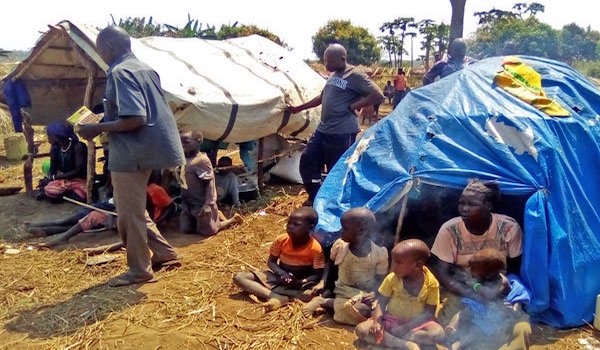By Freda Orochi
The decision made by President Museveni and his cabinet on the Apaa land crisis should be an issue of concern by the citizens of this country as it has left the people of Apaa in a very vulnerable position. The president, while meeting with the cabinet ministers in May 2019, said that those who had settled in the East Madi Game Reserve and were found to have acquired National Identification Cards between 2013 and 2014 as residents of Apaa, be supported with Sh10 million, 20 bags of cement and 20 iron sheets per family in order to enable them to acquire land elsewhere.
Whereas there is need to commend the Government for looking for solutions to the Apaa conflict, there are concerns that the proposed solution will leave the residents of Apaa in a very vulnerable state.
The Apaa issue is a complex ongoing land dispute involving a web of different parties and interests. The debate as to whether Apaa land falls administratively within Amuru or Adjumani District has become part of a wider land conflict. The government claims that the disputed land, measuring about 827 square kilometers, is a protected East Madi Wildlife Reserve located in Adjumani and was gazetted by Parliament in 2002. The residents claim that they were displaced as a result of the LRA war and were living in internally displaced camps. But after the end of the war they were shocked upon returning to Apaa to find it claimed by UWA as part of the East Madi Game Reserve. Since 2011 the residents of Apaa have faced a series of forcible evictions which have been carried out at different times by UWA rangers, police and UPDF soldiers.
The longstanding violence has repeatedly involved burning of huts, forcible displacement, and destruction of property, torture, beatings, and deaths. Given the fact that a lot of human rights violations have been committed in Apaa, the Government needs to bring the perpetrators of these violations to justice and compensate the residents of Apaa who have lost property or have been victims of violence during this conflict. The media is awash with stories of violence, destruction of grave sites meted against residents of Apaa by unknown persons who often commit these atrocities in the course of the night. Despite the public outcry and concern about these acts of violence not much is being done to ensure the safety of the residents of Apaa.
The efforts by the leaders in Apaa to ask Government to degazatte the land for the benefit of the community like it is in Lake Mburo National Park fell on deaf ears. Much as the question of ownership is not answered, it should be noted that the two communities were living together in peace and unity.
Several meetings between the leaders of the two parties failed to resolve this issue which led the President to intervene. Much as the President intervened to solve the problem, his directive will cause more problems than it should have solved. This directly may not be providing the justice that some of us were expecting to see in the whole scandal of the Apaa land.
The question left unanswered is “who owns Apaa land?” Is 10million or 2million adequate enough to afford a family a decent resettlement? Is the criteria being used by the government legal in as far as compensation of victims are concerned?” what does national ID have to do with ownership? Why should citizens of Uganda be treated as though they are strangers?
While the above questions are still lingering in our mind, it can be argued that the decision made by the President in this issue goes against the provisions of the constitution of Uganda. The resolution to compensate the residents on the basis of having or not having a national identity card goes against the principle of Article 26 of the constitution which protects Ugandans from deprivation of property unless with prompt, fair and adequate payment prior to taking away of such. The compensation rates being proposed by government are not only unfair but also inadequate. The period of 1 year that the government has given to the locals to vacate said land does not give residents enough time to relocate elsewhere. This decision is likely to render the residents of Apaa homeless in their own country.
There is need for government to come up with a long lasting solution to this dispute. The decision to order the residents of Apaa to vacate their land and be given compensation basing on them having IDs does not solve the dispute. The compensation rate proposed cannot cater for the suffering that the people of Apaa have gone through and will go through if they leave their land.
Before the land is given to an investor to set up a wildlife sport hunting ground, why doesn’t the government explore innovative methods of managing this with the local residents instead of displacing them? Investment should not be done at the expense of people’s livelihoods, safety and property.
Going forward, there is need for Government to opt for dialogue and use the abundant laws on land administration that the country has to manage this matter in a transparent manner.
The Government through the Uganda Wild life Authority can explore the option of encouraging the affected communities to establish Wildlife Conservation Associations to enter into collaborative management agreements over the mutual use of protected areas and involved resources.
